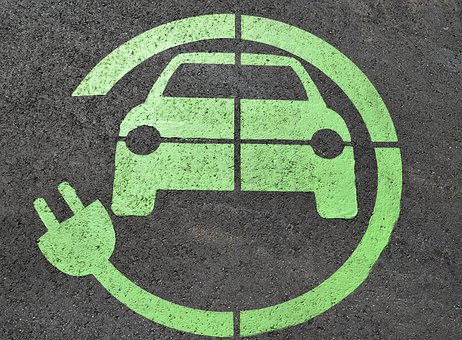
Charging trade marks up for the future
If you type the word ‘car’ into a well-known internet search engine, it will describe ‘a road vehicle, typically with four wheels, powered by an internal combustion engine and able to carry a small number of people’. If only it was that simple. The car that most people end up driving is the result of many financial, practical and emotional decisions which car manufacturers, for over 100 years, have successfully matched production with demand. But recently there has been a seismic change in the automotive sector due to the growing presence of autonomous, connective and electric vehicles (EV). How will this affect the industry? Currently there are more questions than answers which we, as trade mark attorneys, are not in the position to address. However we can discuss how trade marks might be affected when the badge on the bonnet is covering an engine powered by electricity.
Branding has always been important in the automotive industry and when purchasing a car. Whilst the look, price, size, technical features and engine size are all crucial, brand reputation is still a key consideration. With that brand comes an expectation that the car will be of a particular prestige and quality. Automotive manufacturers have maintained their house brands over the years even as car fuel types have changed from leaded ‘four star’ petrol, to unleaded petrol, and diesel. Therefore, a move to electric vehicles should not in itself indicate a change in car branding. An electric car manufactured by one brand is still likely to be sufficiently different to an electric car manufactured by another; ensuring branding will remain an important element in the purchasing decision. By purchasing a car bearing a particular marque, a purchaser hopes to receive a car of a specific quality, finishing and prestige.
As is common in the automotive industry, an electric car is likely to be branded with a model name as well as a house brand, which could be inspired by the fact the car is electric. In the past some manufacturers such as the Volkswagen Group have branded diesel engine cars with terms such as TDI referring to the ‘Turbocharged Direct Injection’ engine type and capabilities. It would seem that similar coined terms and branding may occur in the electric vehicle market based on the type and size of battery used to power a car, especially if a manufacturer is leading the field in such an area.
Technology is constantly developing in relation to cars, attracting market leaders from industry sectors such as mobile phones, computers and vacuum cleaners, who detect an opportunity to apply their knowledge and expertise to the automotive industry. These companies have a reputation for always being one step ahead of the competition in terms of the latest technological developments. A natural assumption would be if these new names become permanent fixtures in the automotive industry then that reputation is likely to follow. Consumers will be drawn to their products, perhaps expecting them to be more technologically advanced than established motor manufacturers? Consequently, motor manufacturers cannot become complacent as such well-established names enter the motor industry. Cars may even become dual branded if collaborations with the new players occur. Would a car bearing two prestigious trade marks prove more popular?
Over the years, merchandise bearing automotive branding has become increasingly popular, especially merchandise sporting luxury car or motorsport logos. The popularity of such products stem purely from the heritage and reputation the brand has secured over time. There would seem no reason as to why merchandise relating to electric vehicle ranges of any highly regarded car manufacturer would be any less popular. In fact, merchandise may become even more fashionable if it has an environmentally friendly angle, in line with electric vehicles.
So what do we forecast for the future of electric vehicle trade marks? Humans are complex. Humans are competitive. Humans make decisions based on emotion. They are drawn to the latest; the quirky; the exclusive. So long as this is the case, there will be a place for trade marks in the automotive sector with there being no need for these trade marks to change. It is important for manufacturers to remember this and resist assuming that the consumer will be happy with a generic electric vehicle. Give up on trade marking the new EV model as robustly as a traditional model and run the risk that consumers may decide to buy a ‘GoogleGTI’ instead!



